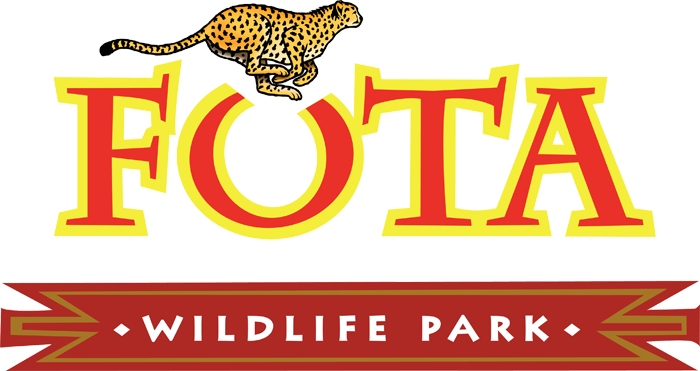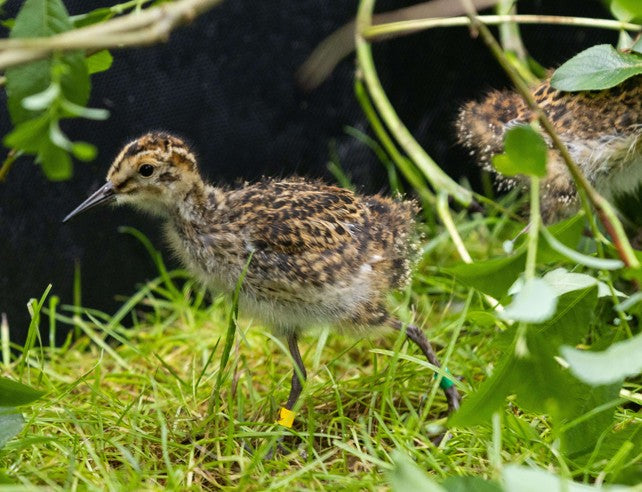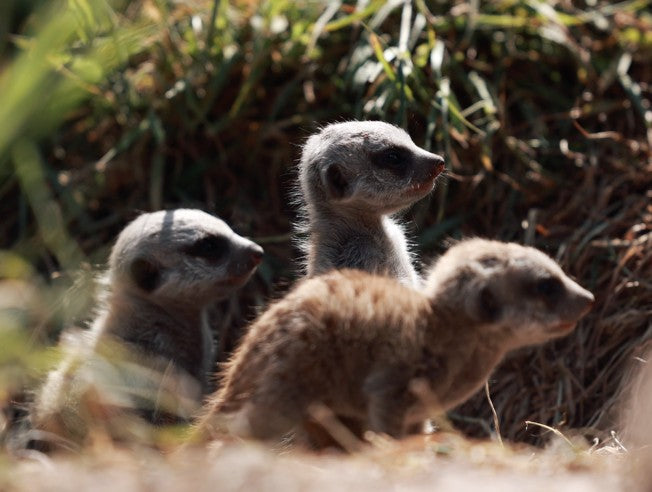Ireland’s first pilot headstarting programme for dunlin (Calidris alpina) is taking place in Fota Wildlife Park Cork, as a project partner of the Breeding Waders European Innovation Partnership (EIP) and in collaboration with the LIFE on Machair project, making it the second conservation centre in Europe to be involved in such an initiative, following Norden’s Ark in Sweden, which began a similar programme in 2023.

As part of the pilot project, three clutches of dunlin eggs were collected from nesting sites, two from LIFE on Machair sites and one from a Breeding Waders EIP site and transported to Fota Wildlife Park. Fota Wildlife Park’s expert animal care team are incubating and rearing the hatchlings in custom-built, bio secure facilities. One clutch has already been successfully ringed and is due to be released later this month.

Dunlin are a red-listed Irish breeding species that favour breeding on machair, upland and offshore islands along Ireland’s west and northern coasts. Numbers in Ireland have declined by over 90% in recent decades, with fewer than 30 Irish breeding pairs remaining nationally. Habitat degradation and increased predation are the primary drivers of this decline. The headstarting pilot at Fota Wildlife Park forms one element of a wider programme strategy that also includes habitat restoration and public awareness in collaboration with landowners and other partners under the Breeding Waders EIP and the LIFE on Machair projects.

Headstarting is a conservation technique involving the rescue of at-risk eggs from wild nests for incubation and rearing in a controlled environment. Once the chicks reach 12 to 15 days old, they are moved to specially designed outdoor release areas, where they remain until ready for return to the wild, which significantly improves chick survival rates, helping overcome key threats such as predation and habitat loss.
Fota Wildlife Park’s Animal Care Manager, Dr Declan O’Donovan, said:
“Fota Wildlife Park, a conservation charity, continues to play a vital role in conserving many of Ireland’s native species through its headstarting initiatives. This pilot project for the dunlin, underscores Fota Wildlife Park’s commitment to biodiversity conservation and to restore Ireland’s most threatened breeding wader species. This initiative is part of a broader conservation strategy that includes habitat restoration, predation risk management, community engagement, and education. We’re proud to be collaborating on this pioneering effort in Ireland with the Breeding Waders EIP project partners, National Parks and Wildlife Service, Department of Agriculture, Food and the Marine, LIFE on Machair and the farmers and landowners from where the eggs are spotted and rescued”.
Owen Murphy, Senior Project Manager with the Breeding Waders EIP said:
“Piloting a headstarting programme in Ireland for our native dunlin is hugely exciting. The local knowledge and relationships built up over the last two years by the LIFE on Machair project have been vital in creating goodwill and interest at the community level. ‘Collaborative Conservation’ involving close connections and friendships between local communities, conservation projects, State bodies and other stakeholders is the key to protecting Ireland’s biodiversity into the future. The nesting sites were identified for rescue and surveyed by LIFE on Machair and Breeding Waders EIP teams. Local landowners supported the project by granting access to key breeding habitats, enabling safe collection and transport of the eggs to Fota Wildlife Park”.
Eithne Davis, Project Manager with LIFE on Machair said:
“LIFE on Machair are delighted to have joined forces with the Breeding Wader EIP and the team at Fota Wildlife Park for this innovative headstarting work with dunlin. Headstarting is a valuable scientific tool for emergency situations, such as this. The landowners, with ongoing support from our ecologists in LIFE on Machair, are working to make sure that these chicks are released into healthier, safer habitat, improving their chance of survival to adulthood. The combined expertise of all three parties gives these birds the greatest chance of success, and we’re really excited to be part of this conservation story”.
Fota Wildlife Park is a leader in native species headstarting conservation and its long-standing headstarting work in partnership with the National Parks and Wildlife Service (NPWS) with the endangered natterjack toad has resulted in the release of over 11,000 reared toadlets into the wild in Kerry since 2016. Fota Wildlife Park, as a project partner of the Breeding Waders EIP is also actively involved in the incubation, hatching and rearing of endangered curlew chicks for release to their native nesting sites as part of the project.
In addition to its native species conservation efforts, Fota Wildlife Park actively participates in breeding and reintroduction programmes for endangered species such as the European bison, scimitar-horned oryx, and white-tailed sea eagle. Both the European bison and scimitar-horned oryx were once extinct in the wild.
(Image and video credits, Darragh Kane)



